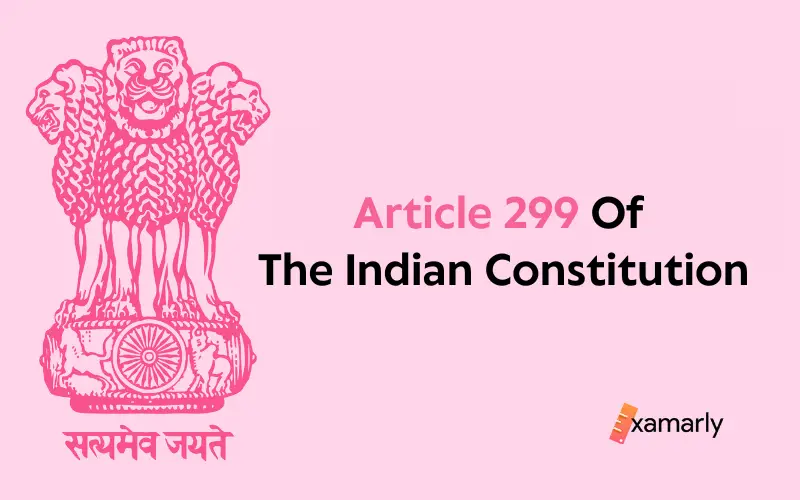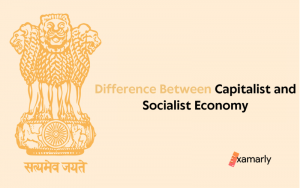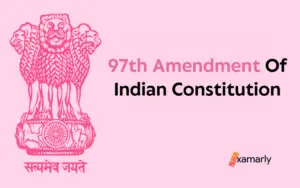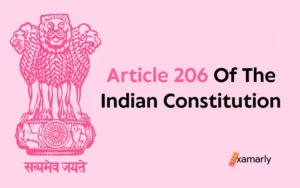Article 299 of the Indian Constitution talks about the power and authority of contracts in India.
It lays down the provisions on how a particular contract would be exercised in India.
Let us dig deep into Article 299 of the Indian constitution and get to know all about it.
Article 299 Of The Indian Constitution – In Detail
We will break down all the clauses and sub-clauses present in Article 299 of the Indian Constitution so that we will have an in-depth understanding of it.
Clause 1 – As it is & Explained
(1) All contracts made in the exercise of the executive power of the Union or of a State shall be expressed to be made by the President, or by the Governor of the State, as the case may be, and all such contracts and all assurances of property made in the exercise of that power shall be executed on behalf of the President or the Governor by such persons and in such manner as he may direct or authorise
According to the first clause of Article 299 of the Indian Constitution, all contracts entered into by the President or a State Governor in the exercise of their respective executive powers must be expressly made by the President or Governor, and must be executed on behalf of the President or Governor by such persons and in such manner as he may direct or authorise.
Clause 2 – As it is & Explained
(2) Neither the President nor the Governor shall be personally liable in respect of any contract or assurance made or executed for the purposes of this Constitution, or for the purposes of any enactment relating to the Government of India heretofore in force, nor shall any person making or executing any such contract or assurance on behalf of any of them be personally liable in respect thereof
The second clause of Article 299 of the Indian Constitution says that neither the President nor the Governor, nor any person making or executing any contract or assurance on behalf of either of them, shall be personally liable in respect of any contract or assurance made or executed for the purposes of this Constitution or for the purposes of any enactment relating to the Government of India heretofore in force.
You Might Also Want To Read – Article 297 Of The Indian Constitution
Summing Up
We can conclude from Article 299 of the Indian Constitution that such contracts shall be expressed to be made by the President or Governor, and shall be executed on behalf of the President or Governor by such persons and in such manner as they may direct or authorize.
We can also conclude that neither the President nor the Governor shall be personally liable for any contract or assurance made or executed in the exercise of their executive power, nor shall any person making or executing such a contract or assurance on behalf of the President or Governor be personally liable.
This means that the President or Governor and any person acting on their behalf are not personally responsible for any contracts or assurances made in the course of their official duties.
FAQs
What is a contract?
A contract is a legally enforceable agreement between two or more parties. A contract typically involves an offer by one party and acceptance by another party, and the exchange of something of value (such as money, goods, or services) between the parties.
What are the requirements for a contract to be valid in India?
For a contract to be valid in India, it must meet the following requirements:
Offer and acceptance: There must be a clear offer made by one party and acceptance by another party.
Consideration: There must be something of value (such as money, goods, or services) exchanged between the parties.
Capacity: The parties must have the legal capacity to enter into a contract. This means that they must be of legal age (18 years or older), of sound mind, and not under any legal disability (such as being bankrupt).
Free consent: The parties must freely and willingly enter into the contract without any undue influence, coercion, or fraud.
Legality of object: The object or purpose of the contract must not be illegal or contrary to public policy.
How is a contract executed in India?
There are no specific requirements for the execution of a contract in India. However, a contract may be executed in writing or orally, and it may be signed or unsigned. If the contract is in writing, it is generally advisable to have it signed by the parties to demonstrate their agreement. If the contract is oral, it may be more difficult to prove its existence and the terms agreed upon.
Can a contract be executed electronically in India?
Yes, a contract can be executed electronically in India. The Indian Contract Act, 1872, and the Information Technology Act, 2000, provide for the validity of electronic contracts and the admissibility of electronic records as evidence in legal proceedings. However, certain types of contracts (such as wills, trusts, and power of attorney) may require a higher level of formality and may not be executed electronically.
Can a contract be terminated in India?
Yes, a contract can be terminated in India. A contract may be terminated by mutual agreement of the parties, by the performance of the terms of the contract, by breach of contract by one of the parties, or by operation of law. If a party breaches a contract, the other party may be entitled to remedies such as damages or specific performance.






